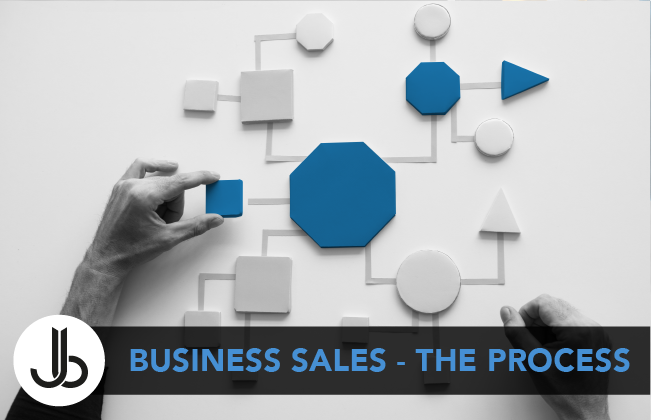

Whether you are buying a business or selling a business, there are some key stages that you are likely to go though. The complexity of the process and the amount of time spent on each stage will vary depending upon the value of the target business, the structure of the target business, the structure of the transaction and which industry the business operates in.
Stage One – Due diligence
Due diligence is the process of investigation that a buyer will carry out before they proceed with a transaction. The purpose is to provide the buyer with confirmation of material facts regarding the business or assets being purchased and to allow them to ascertain and understand any risks associated with the transaction.
The scope of due diligence can be vast and in larger transaction it is likely to cover:
- Legal
- Financial and taxation
- Technical
- Employment
- Pensions
- Environmental
- Property
- Intellectual Property
- Management
Often a party will complete some level of due diligence themselves but generally a buyer will need assistance from solicitors, accountants and in more complex situations they will require other experts to provide a specific report, e.g pension experts.
When more than one advisor is to take part in due diligence for the buyer (e.g a solicitor and an accountant), if is essential that the task is carefully managed to ensure that nothing is missed.
The process:
- A non-disclosure agreement is usually signed.
- The buyer instructs their teams of advisors in relation to the target business, its structure, characteristics, size and value.
- A due diligence questionnaire is prepared.
- The Seller then responds to the questionnaire (usually with assistance from their own advisors).
- The buyers advisors will examine the responses and advise the Buyer accordingly.
The alternative is to arrange a “data room” whereby information on the target company is collated by the seller often to enable potential purchasers to formalise the terms of an offer following the review of some key information.
This can be facilitated either physically at a location or via a ‘virtual’ data room.
The due diligence process is an important step for both the buyer and the seller. Reliance will be placed on the accuracy and the validity of the responses provided by the Seller to the Buyer when they are making a decision whether to proceed.
The information also assists the buyers solicitors when drafting the Sales Contracts as it will determine the nature and extent of the warranties and indemnities that need to be included.
Stage two – The Share Purchase or Asset Purchase Agreement
There are two main types:
- Share Purchase Agreements
- Asset Purchase Agreements
A share purchase agreement is when the buyer is taking over some or all of a company. The target company is a separate legal entity and the purchase of the company will include all of its assets, liabilities and obligations.
The downside to this is that the Buyer will inherit any historic problems.
One benefit is that continuity is maintained as contracts with employees, suppliers and customers remain uninterrupted and to the outside world, it can appear business as normal.
An asset purchase agreement is needed to transfer a specific business assets or assets and employees. The buyer can pick the specific assets it wants or more importantly any that they do not want. The buyer can also avoid taking on all of the liability of the seller. Both parties must however be mindful of how they deal with the transfer of employees which is regulated by ‘TUPE’ regulations.
The process:
- It is conventional for the Buyer’s solicitors to prepare the draft sales contract.
- The content of the contract will be negotiated.
- Warranties and indemnities will be agreed.
- The Seller will prepare a disclosure letter (if required).
- Any other associated documents will be prepared.
It is best practice for the parties to agree to the drafting of any other documents which are required at completion. This prevents any problems if one party is dissatisfied with the content.
Common examples include:
- Resignation letters
- Share Transfer Forms
- Settlement Agreements
- Minutes of a board meeting
- Power of Attorney
- Fixed term employment contracts
- Novation agreements
Stage three – Completion
This is the stage whereby the deal is finalised.
The contracts are executed by all parties and the solicitors for each party will deal will engage in a completion process which will include the purchase funds being transferred.
How can we help?
At Johnson and Boon solicitors, we can deal with the whole process from start to finish. We have a wealth of experience in a wide variety of sectors and in particular business acquisitions and sales.
If your proposed transaction is fairly modest in size, we will advise you as to the best level of due diligence to undertake and how best to approach the deal in a way that makes commercial sense. Equally, if the transaction is particularly large, we will advise you of the additional due diligence that you may require to consider undertaking which is enhanced from the standard level enquiries.
If involvement from accountants or other experts is required, we will project manage their involvement to ensure that everything is covered, and the process remains on track.
We will deal with the entire legal process on your behalf, including dealing with any ancillary matters such as leases.
If you would like to speak to a member of our team today.
Call: 0151 637 2034
Email: info@johnsonandboon.co.uk
Learn more: johnsonandboon.co.uk/businesssales
